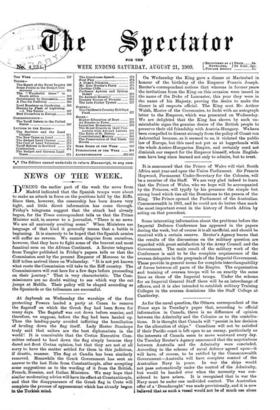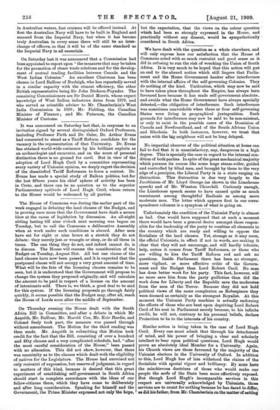As for the naval question, the Ottawa correspondent of the
Times says in Tuesday's paper that, according to official information in Canada, there is no difference of opinion between the Admiralty and the Colonies as to the contribu- tions. It is thought that Canada will "persist in her decision for the allocation of ships." Canadians will not be satisfied if their Pacific coast is left open to an enemy, particularly as the interests of Canada seem to move westward every day. On Tuesday Renter's Agency announced that the negotiations between Australia and the Admiralty were concluded. According to the scheme of naval defence agreed upon—it will have, of course, to be ratified by the Commonwealth Government—Australia will have complete control of the Australian Navy in peace. In war the ships would not pass automatically under the control of the Admiralty, but would be handed over when the necessity was con- sidered to have arisen. It is recognised that in war the Navy must be under one undivided control. The Australian offer of a 'Dreadnought' was made provisionally, and it is now believed that as such a vessel would not be of much use alone
in Australian waters, fast cruisers will be offered instead. At first the Australian Navy will have to be built in England and manned from the Imperial Navy, but when it has become truly Australian in every sense there will still be an inter- change of officers, so that it will be of the same standard as the Imperial Navy in all essentials.







































